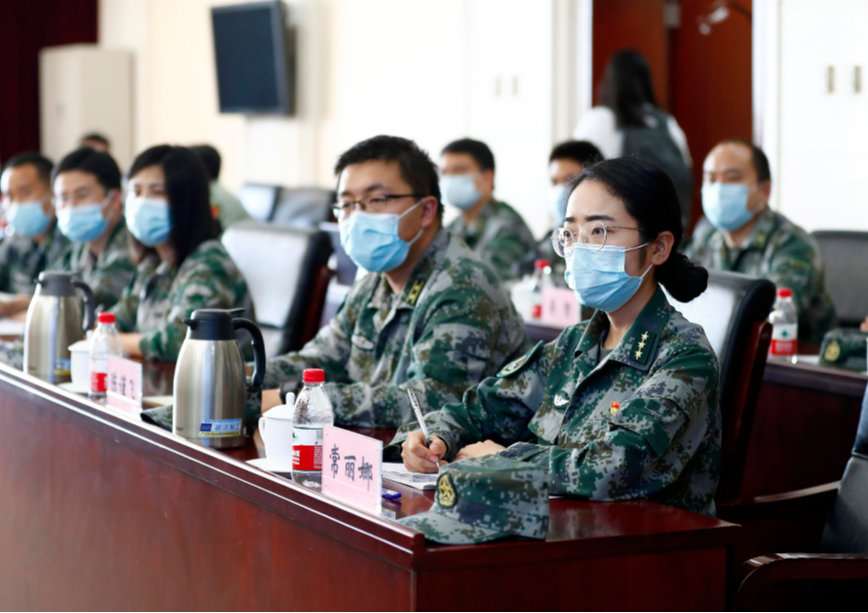-
CENTRES
Progammes & Centres
Location
Many in the Chinese strategic circles believe that although West Asia is significant for China, it should lay low and let US get embroiled in the regional conflict.

In the last few weeks as Iran and Israel fell into a ‘retaliation cycle’, marking sa dangerous new phase in the Israel-Palestine conflict, China kept a close eye on the developments in the region. Chinese media ran almost daily commentaries, either championing the Palestinian cause, cheering for Iran and its “Axis of Resistance” or highlighting how the relations between Israel and the US is faltering, and how it can spell doom for Israel.
What is interesting to note is that most Chinese analysis on West Asia is through the prism of how the developments in the region may adversely impact the United States’ (US) interests and thereby, indirectly benefit China, rather than what role China can play in proactively shaping the affairs of the region.
What is interesting to note is that most Chinese analysis on West Asia is through the prism of how the developments in the region may adversely impact the United States’ (US) interests and thereby, indirectly benefit China, rather than what role China can play in proactively shaping the affairs of the region.
To start with, as the 7 October Hamas attack on Israel took place, commentaries in the Chinese media cheered at the prospect of the US and Israel falling into an endless war of attrition, providing yet another lifeline (after the Russia-Ukraine war) to China’s continued rise. It is fair to say that a section of China’s strategic community was rather pleased to see how the new round of Palestinian-Israeli conflict triggered serious divisions among different sections within the US society—how there was chaos and division in the streets, on the campuses, and even in the political circles of Washington and how the powerful US media fumbled and was unable to produce a consistent discourse for global consumption like in the case of Russia-Ukraine conflict. The most significant win for Beijing has been the internal strife and divisions within the ruling Democratic Party and President Biden’s agonising dilemma of choosing between his Jewish donors and young “progressive” voters, as he seeks re-election. Discussions in Chinese public forums at that time included ideas like uniting the Arab-Islamic world and the entire Global South over the Palestine issue, to usher in de-dollarisation, the fall of the current world order, amongst others
Six months down the lane, the Chinese assessment is that “Israel is still in control”. Although regional countries have opposed Israel in diplomatic terms and continued to intensify its diplomatic isolation, however, the regional Arab countries, be it Türkiye, or Iran, they have not been able to form a unified anti-Israel front, and pose a substantial threat to Israel. Even those Arab countries that have established diplomatic ties with Israel have not severed them. The conflict in Gaza did activate other conflicts in the region but their impact has so far been limited. For example, armed groups like Hezbollah seem unwilling to get involved in the battlefield head-on; the Houthi armed forces in Yemen is somewhat losing the initiative in the Red Sea region; Jordan and Egypt “drew red lines” on the Gaza refugee issue; Iraqi militia groups only carried out symbolic attacks on Israeli targets.
Now that Israel and Iran have shifted from “covert war to overt war”, the key question doing the rounds among Chinese strategic circles is whether or not, the current churn will finally drag the US directly into the battlefield and torpedo its Indo-Pacific plans. Or, it will again remain limited to lower-intensity attacks or precision strikes between Iran and Israel.
Now that Israel and Iran have shifted from “covert war to overt war”, the key question doing the rounds among Chinese strategic circles is whether or not, the current churn will finally drag the US directly into the battlefield and torpedo its Indo-Pacific plans.
Some Chinese West Asia observers like Liu Yanting, state that no matter what the US does in West Asia, whether it chooses greater engagement or continues its retreat, it will have to pay a heavy price and thereby, having some positive implications for China. For example, if the US eventually gets involved in a new wave of wars in the Middle East, no matter what gains it makes in the region, its much-hyped Indo-Pacific Strategy will fizzle out. Japan, Australia, and the Philippines may then try to avoid risks by repairing ties with China, and the ASEAN countries will further move closer to China.
On the other hand, if it chooses to play down the issue of Iran’s direct attack on Israel and continues with the process of withdrawing from the region, Iran will get further emboldened, and the traditional US allies in the region, in their effort to reduce risk, may strive for more strategic autonomy, including moving closer to China. Some Chinese scholars, on the disagreements between Biden and Netanyahu administrations, argue that if the US could sacrifice Israel, when it is under attack from a hostile power, what use would it be to other Asian allies in their fight against China?
However, despite the rhetoric in the Chinese media, deep down, there seems to be a greater realisation within Chinese strategic circles that although the US disengagement from West Asia in the past years has created opportunities for China and strengthened its presence in the region, even then, the influence of the US in the West Asia is still somewhat “unshakable” and should not be underestimated. In addition to having a large number of troops stationed, it still has leading advantages in the economic, political, and technological realm.
From the perspective of great power competition, Chinese observers argue, that although the region is significant for Chinese foreign policy, however, it is better for China to stay low for now, else it may cost China more and make it a direct target of the US’confrontational policies in the region. China may “roar” a few times over the Middle East conflict or the Russia-Ukraine conflict, however, ultimately it should let the US take the lead in these issues and thereby let it get passively drawn into these region’s complex politics. This, they believe, will force the US to divert more energy from its Indo-Pacific theatre, and the pressure on China will diminish. China can also take advantage of the US preoccupation to intensify its global outreach, particularly in Africa, ASEAN, South America, and other regions. This, they say, is much in sync with China’s tried and tested “roundabout combat strategy”—a circuitous military tactic, where it does not face the enemy directly, but bypasses the enemy's front and launches an attack from the flank or rear—and combat method of “concentrating superior forces to fight a war of annihilation”—focusing on forming local advantages and winning local wars.
From the perspective of great power competition, Chinese observers argue, that although the region is significant for Chinese foreign policy, however, it is better for China to stay low for now, else it may cost China more and make it a direct target of the US’confrontational policies in the region.
What India needs to watch out for is how China uses platforms like BRICS to mobilise the newly added Islamic member nations including Saudi Arabia, Egypt, the United Arab Emirates and Iran to make a political statement on West Asia, thus tilting the great power competition in China’s favour.
Antara Ghosal Singh is a Fellow at the Strategic Studies Programme at the Observer Research Foundation.
The views expressed above belong to the author(s). ORF research and analyses now available on Telegram! Click here to access our curated content — blogs, longforms and interviews.

Antara Ghosal Singh is a Fellow at the Strategic Studies Programme at Observer Research Foundation, New Delhi. Her area of research includes China-India relations, China-India-US ...
Read More +